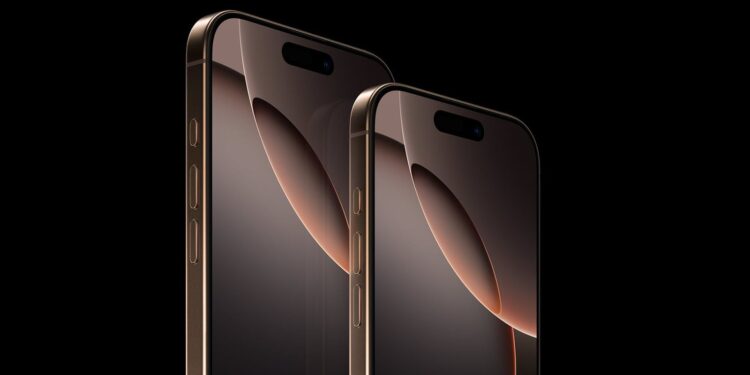The iPhone will be spared a massive price increase for the time being. This is due to a recent decision by the US government: A planned tariff on electronics imports from China will not be implemented in many cases. This avoids a 145 percent surcharge on products such as smartphones and laptops for the time being.
In recent weeks, there has been a great deal of uncertainty surrounding US tariff policy. The Trump administration announced plans to drastically increase import tariffs on a wide range of Chinese products. These measures would have hit Apple particularly hard. The iPhone, like many other electronics, is manufactured in China and imported into the US. This would have resulted in significantly higher sales prices to offset the additional costs. Now the all-clear has been given. The US Customs and Border Protection agency has published a list of exceptions. Smartphones like the iPhone are included on this list. This means that for now, one thing is certain: There will be no immediate price increases on Apple products.
Customs exemptions protect iPhones, laptops and more
According to a Bloomberg report, exemptions have been granted for certain product categories. Among those benefiting are:
- Smartphones (including the iPhone)
- laptops
- Computer processors
- Hard drives
- Memory chips
These products are central to the tech market, but are manufactured almost exclusively in Asia. While shifting production to the US is theoretically possible, it would take years and be very expensive. The exemption therefore helps not only Apple, but also other major manufacturers that rely on supply chains in China.
No 145 percent tariffs on the iPhone
The original plan was to impose a punitive tariff of 145 percent on certain Chinese imports. In addition, basic tariffs of 10 percent were to apply to imports from almost all other countries. The now announced exemptions significantly restrict this tariff framework. Specifically, this means that products such as the iPhone are exempt from the 145 percent tariff and also from the basic tariff. This decision not only ensures price stability but also planning security for manufacturers and retailers (via Bloomberg).
Semiconductor technology is also excluded
In addition to end products such as smartphones and laptops, the tariff exemption also applies to semiconductor production machinery. This is particularly relevant for companies like Taiwan Semiconductor Manufacturing Co. (TSMC). TSMC has announced plans to invest heavily in new chip factories in the United States. Other chip manufacturers also benefit from the fact that their equipment will not be made more expensive by additional tariffs.
Despite relief, uncertainty remains
The decision comes at a time of economic and political uncertainty. In the same week that the exemptions were announced, the US government initially announced a comprehensive increase in import tariffs. At the same time, it decided to reset tariffs for most countries to 10 percent for 90 days. This was likely intended to buy some time. Despite the current tariff exemptions, the situation is not stable. Bloomberg reports that sector-specific tariffs are still being discussed within the Trump administration. This means that even if the iPhone is spared for the time being, new measures could follow in the near future.
- Apple production in China unsustainable according to Trump
- Trump convinces: Apple can manufacture iPhones in the USA
Tariff break gives Apple breathing room, but no security
The iPhone won't be getting more expensive anytime soon. The US government has decided to exempt certain electronic products from the announced punitive tariffs. These include smartphones, laptops, processors, and other tech items. This provides a much-needed respite for Apple and other tech manufacturers. However, one thing is clear: the danger is not completely over. Political decisions can change quickly. (Image: Apple)
- Q2/2025: Apple to present figures on May 1 – and discuss tariffs
- Apple got in its own way with AI 2023 – budget was too tight
- Apple to bring delayed Siri features in fall 2025





